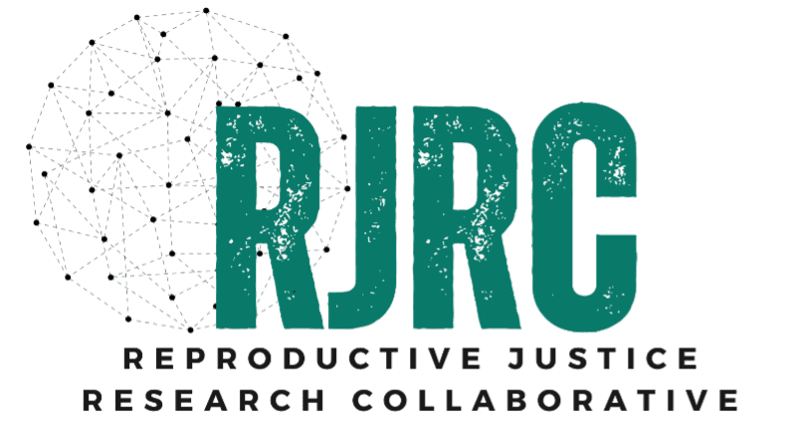Reproductive Justice Research Collaborative

In July 2023, WGSS and affiliates in Bouvé College of Health Sciences, School of Law, History, Mills College at Northeastern, and the School of Journalism were awarded a Tier One grant from the Provost’s office to begin work on the Reproductive Justice Research Collaborative (RJRC). Northeastern is the home of Signs: Journal of Women in Culture and Society, the leading international journal in feminist and gender studies. Program director Suzanna Walters serves as Editor-in-Chief of the journal and Professor Carla Kaplan serves as Chair of the Board of Associate Editors. Northeastern acquired Signs as of January 1, 2015 and will be the home of the journal through December, 2025. The WGSS program works closely with the journal and offers research assistant positions to qualified graduate students each year.

PURPOSE: Since the Supreme Court overturned Roe v. Wade, dozens of states have severely limited access to or banned abortion. Many local governments are adopting ordinances designed to increase or decrease access to abortion within their jurisdictions. In this era of concern and confusion, decentralized and siloed information presents a huge challenge for community groups, research entities, and the general public. Institutions such as universities, with significant research and data analytic capacity, are poised to play key educational and research roles in addressing this current moment. In this rapidly changing health care landscape, collaborations are critical for providing accurate and accessible scholarly resources and data.
INTERDISCIPLINARY AND ON-THE-GROUND IMPACT: Northeastern University’s new Reproductive Justice Research Collaborative (RJRC) pilot project is co-led by a team of experts from across programs, including Ethnic Studies, Health Sciences, History, Journalism, Women’s, Gender, and Sexuality Studies, and the School of Law with a much larger Advisory Committee representing a broad swath of the University. RJRC is also supported by a cross-disciplinary team of PhD and Law students as dedicated research assistants.
Utilizing our network of thirteen campuses, RJRC endeavors to connect local advocates with interdisciplinary researchers to provide timely and robust data, develop broad curricular materials, and initiate targeted projects in response to specific community partner needs. Focused currently on two regions with Northeastern-affiliated campuses – Boston and California’s Bay Area – the RJRC will launch collaborative partnerships with several local advocacy organizations working on reproductive justice. In early 2024, our team surveyed local groups to identify real needs and resource gaps.
OBJECTIVE/DELIVERABLES: Northeastern University’s RJRC intervenes into this dispersed informational field with four goals: community, curriculum, curation/collation, and cultivating knowledge. This project endeavors to create an online information and coordination hub across four key streams of activity: health, journalism/media, law, and policy. RJRC will not only be an online repository of up-to-date research – a one-stop shop of regularly refined statistics and scholarship accessible to both scholars and advocates – it will a collaborative space that uniquely centers local organizations’ complex needs for statistics, research, and messaging while at the same time creating innovative tools for reproductive justice curricula that directly respond to current crises and community demands. There is a need for a singular place to access existing scholarship in new, actionable ways as well as connect local advocates and scholars excited to collectively collaborate on new research and curricular innovations.
We begin this project with a key question: what can academia do to advance reproductive justice? Further, how can we best collaborate with community advocacy groups to create actionable knowledge, robust data sets, and interdisciplinary projects and curricula?
- Community: Connecting local groups with national experts and scholars with local practitioners; creating projects that directly respond to needs articulated by local community advocates. Annual workshops will serve as incubators of specific research projects; targeted data gathering initiatives led by community partner needs; outreach plans for the larger Northeastern Global Network; and concrete planning for our digital hub, including associated AI features and regularized updating and maintenance – will be a feature of this project. The first such workshop will be held on the Mills campus in Oakland, CA in April 2024.
- Curriculum: creating open access, interdisciplinary curricula for “Teaching Reproductive Justice.” At present, few courses exist on this topic and the ones that do are largely located in three sites: women’s/gender studies programs, law schools, and health/medicine programs. There is a burgeoning need for up-to-date and interdisciplinary curricular initiatives that offer opportunities for multiple teaching modalities (e.g. online, co-taught across disciplinary boundaries, etc.)
- Collating and curating relevant legal and policy initiatives from across the country into fact sheets for local elected officials or for distribution at public gatherings and educational events
- Cultivating knowledge through the creation of, for example, template Op-Eds, Letters to the Editor, and social media infographics with up-to-date local data. Producing daily “Today in RJ” newsletters that gather together in one place relevant op-eds, news articles, etc. for actionable use by RJ community groups
All of these endeavors will be led by an interdisciplinary team of scholars and community-based RJ advocacy organizations, and will “live” on a regularly monitored and fluid digital hub.